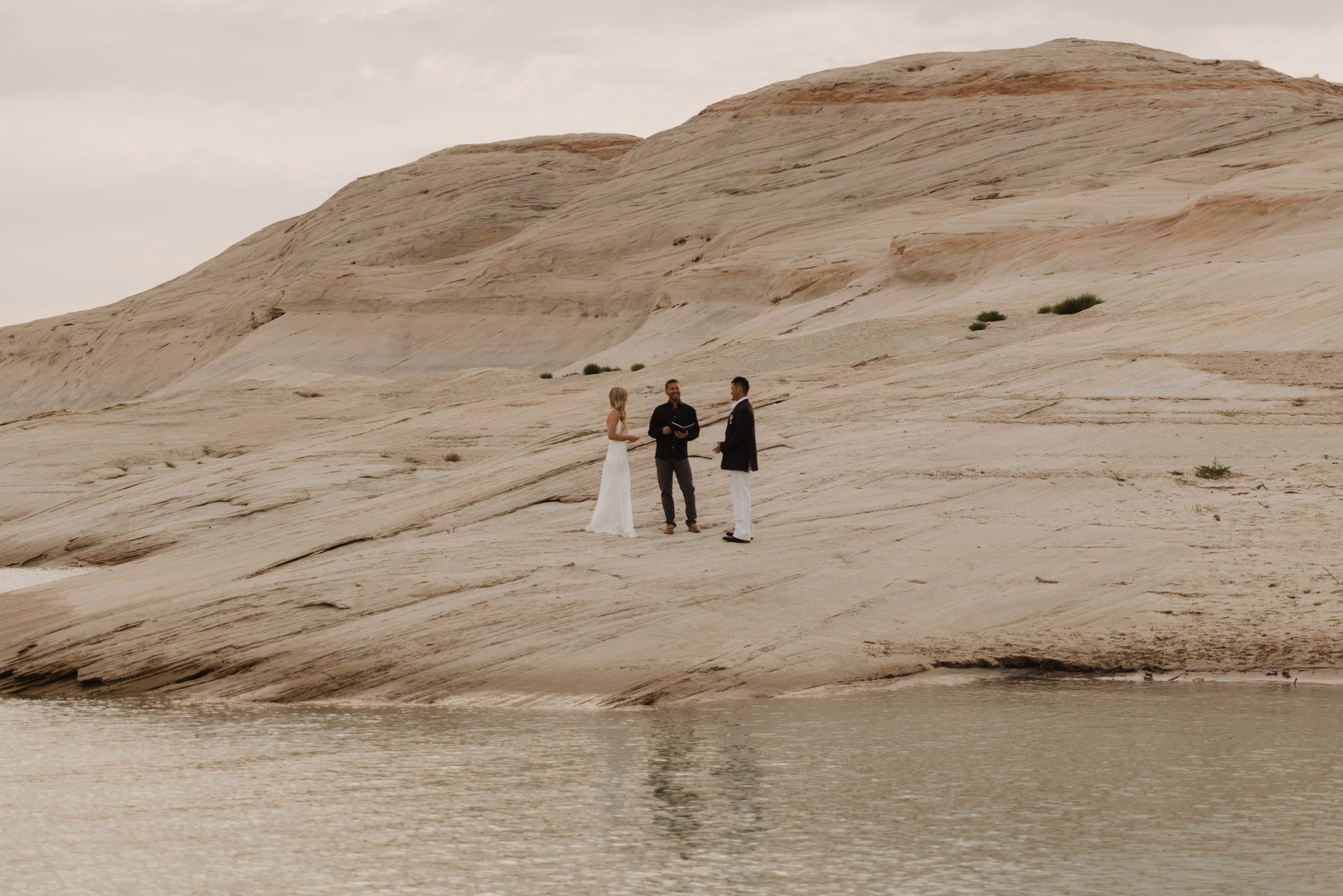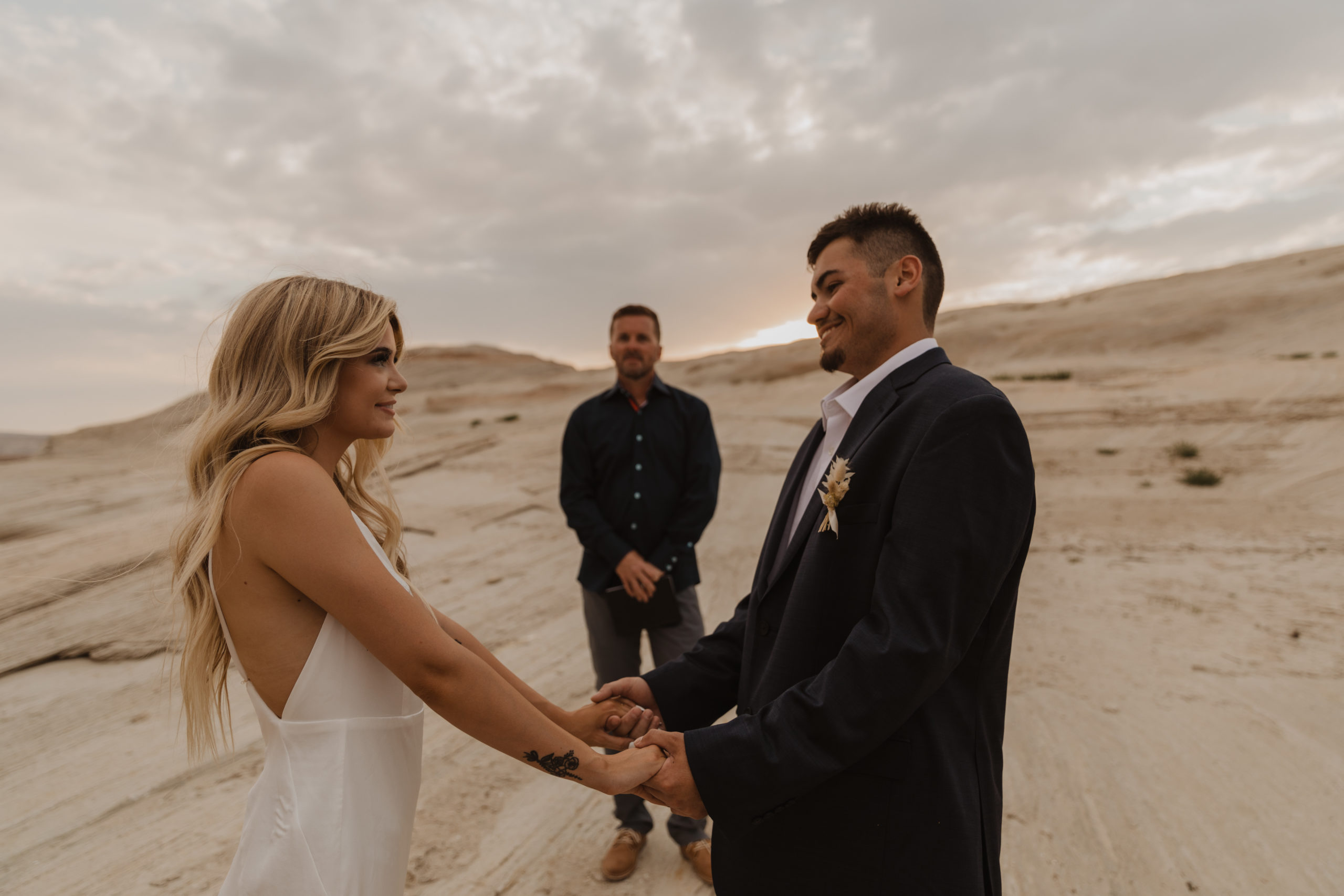July 19, 2021

One of the biggest questions eloping couples have is this: “are elopements legal?” The short answer is yes. While every state has different rules, you can absolutely have a legal elopement.
States’ rules vary widely and you may find that waiting periods, age requirements, and witnesses will vary. The best way to find up to date information is to check the website for the specific county.
Set Your Date and Location
First things first, you’ll need to figure out where and when. This will help you plan everything else. Marriage licenses will expire, so you can’t apply too far out from your elopement date. For example, California has a 90-day expiration once the license is issued. They also may have waiting periods, so you can’t wait until the absolute last minute either. Figure out the county and state requirements for where you’re eloping and give yourself the additional time you need when booking your trip.
Apply for a marriage license
Some states will allow you to apply online for your license, some will require you to do this in person. You’ll likely need to go with your partner to apply for your license if it’s an in-person application.
Here is what you’ll likely need to obtain a marriage license for an elopement:
- Proof of identity (like a driver’s license or birth certificate)
- Cash to pay the fee
- Parents’ names, birthplaces, and mothers’ maiden name
This may not be the case for every state, so again, check the website for the state and county where you’re eloping.
You’re allowed to obtain a marriage license in a state where you aren’t a resident, but you can’t have a legal ceremony in a state where you didn’t get a license. Meaning, if you live in Washington and want to have a destination elopement in Colorado, you must get a license in Colorado. Some couples will choose to get a license in their home state and take care of the legal stuff on another date and some will choose to do this in the state where they have their elopement ceremony. It’s totally up to you.
Find out if there is a waiting period
A few states require a waiting period after you apply for your license, or a waiting period before you can marry once getting your license. This means that you’ll need to plan travel accordingly and give yourself a cushion of time before your elopement date. Oregon and Washington both require a three day waiting period between applying for your license and receiving it, so you’ll need to hang out for a few days before your elopement date. Keep this in mind when booking flights and stay!

Get signatures from witnesses and officiant
After your elopement ceremony, you’ll likely need to get signatures from witnesses and your officiant. Your witnesses could be guests of your or they could be total strangers you meet on the trail. Finding strangers to sign typically isn’t difficult- people are usually so excited to be a part of someone’s special day!
As for officiants, you can hire a professional, bring along a loved one, or even have your photographer act as your officiant! I’m ordained in my home state of California and can officiate your ceremony. I know having your photographer officiate sounds crazy, but some couples have trouble finding an officiant for their location and this can be a great way to make it official. Basically, I’ll have you say your vows to each other and then I’ll walk you through the rest of the ceremony and pronounce you husband and wife, wife and wife, husband and husband, or partners in life (whatever verbiage you prefer here!). From behind the camera, I’ll give you permission to kiss while I capture that special moment.
Currently there are three places where you can skip the officiant and self-solemnize (or marry yourselves)- Washington D.C., Colorado, and Pennsylvania. Each of these have different rules, so you’ll need to research the requirements.
Return the signed license to the county
After your marriage license is signed, it will need to be returned to the county clerk by your officiant (or by you, if you self-solemnize). Once again, this varies by state, so be sure to check this on the county’s website. Some states require it be returned within a certain number of days so you’ll want to know ahead of time what that requirement is.
